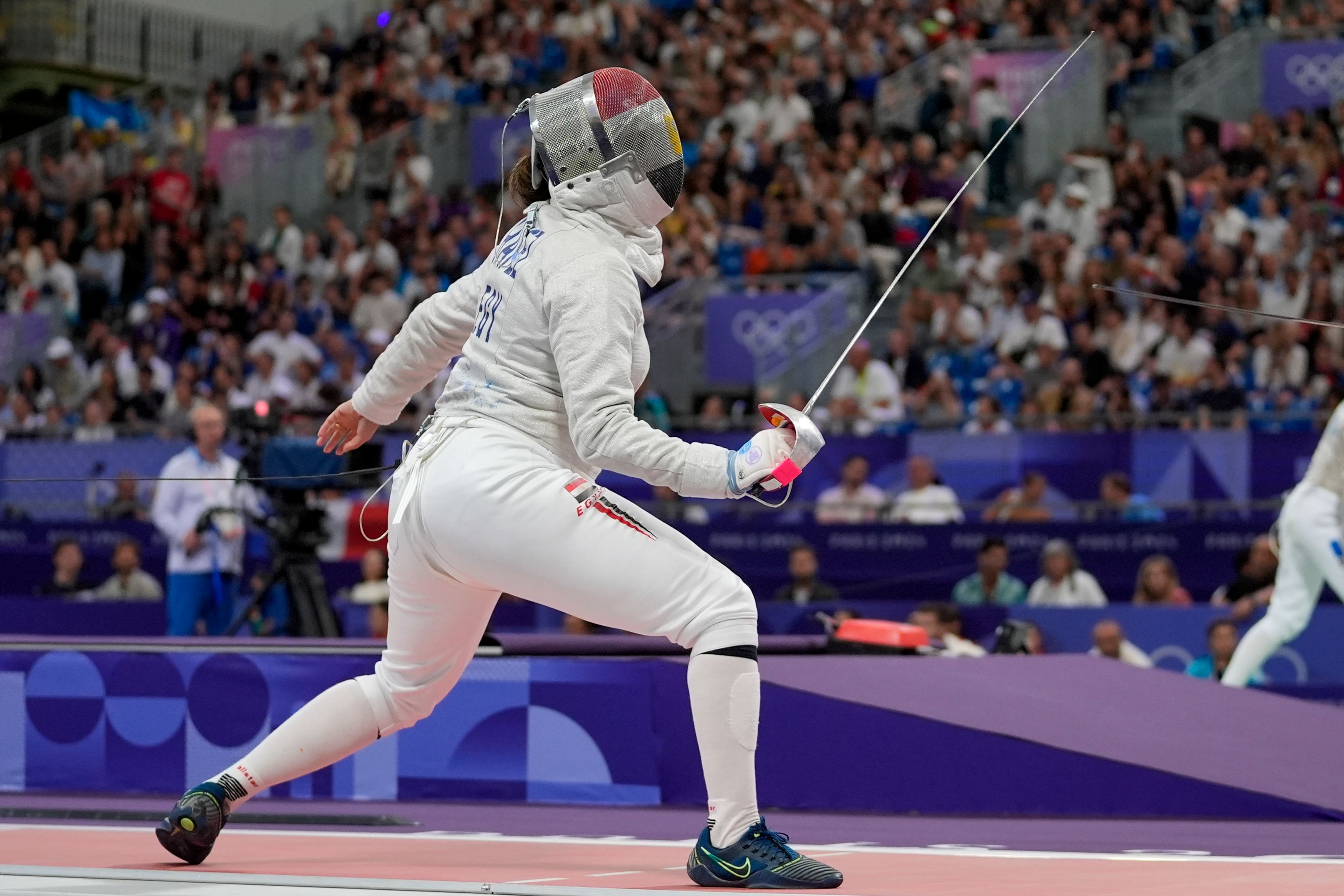Is it safe to exercise in your third trimester?
As pregnant Nada Hafez fences in the Olympics, fitness and pregnancy experts tell Lisa Salmon that physical activity in all trimesters is healthy.

Your support helps us to tell the story
From reproductive rights to climate change to Big Tech, The Independent is on the ground when the story is developing. Whether it's investigating the financials of Elon Musk's pro-Trump PAC or producing our latest documentary, 'The A Word', which shines a light on the American women fighting for reproductive rights, we know how important it is to parse out the facts from the messaging.
At such a critical moment in US history, we need reporters on the ground. Your donation allows us to keep sending journalists to speak to both sides of the story.
The Independent is trusted by Americans across the entire political spectrum. And unlike many other quality news outlets, we choose not to lock Americans out of our reporting and analysis with paywalls. We believe quality journalism should be available to everyone, paid for by those who can afford it.
Your support makes all the difference.There’s no need to stop being physically active when you’re pregnant – and Egyptian fencer Nada Hafez is testament to that.
The sportswoman competed at the Paris Olympics while seven months pregnant with her unborn “little Olympian”, winning her first match in the women’s individual sabre competition, before being knocked out in the last 16.
It was only then that Hafez, 26, publicly revealed she was pregnant, writing in an Instagram post titled ‘7 months pregnant Olympian!’: “What appears to you as two players on the podium, they were actually three! It was me, my competitor, & my yet-to-come to our world, little baby!
“My baby & I had our fair share of challenges, be it both physical & emotional.
The rollercoaster of pregnancy is tough on its own, but having to fight to keep the balance of life & sports was nothing short of strenuous, however worth it.
“Three times *Olympian* but this time carrying a little Olympian one!”
For many mothers, simply carrying a baby in the third trimester is hard enough, without competing in the Olympics at the same time. But keeping physically active is a great way to help mums-to-be stay healthy throughout their pregnancy – although some may feel competing in the Olympics at seven months pregnant is taking exercise to the extreme.
Michelle Baynham, founder of Mother Fit, a pre- and postnatal wellness platform, praised Hafez for competing in the Olympics while pregnant, stressing that as long as the fencer has a healthy pregnancy, it’s safe for her to continue training throughout all trimesters.
“The UK physical activity guidelines recommend pregnant women aim for at least 150 minutes of moderate-intensity activity each week, including muscle-strengthening activities twice a week,” she says.
“All activity counts, but start gradually if you’re not currently active, and keep going if you’re already active.”
Although most women will have an obvious bump by the third trimester, that doesn’t necessarily mean physical activity will be out of the question, explains Baynham.
“It may not feel uncomfortable for her to exercise in the third trimester – every woman’s journey is different,” she says, pointing out that the NHS advises against exercises that risk the woman’s bump being hit, such as martial arts, football, rugby, tennis, or squash.
Far from harming pregnant women’s unborn babies, Baynham points out that exercise during pregnancy has numerous health benefits, such as preventing diabetes, reducing high blood pressure, improving sleep, mood and fitness, and helping control weight gain.
“There is no evidence of harm to the expectant mother or her baby,” she stresses.
However, she points out that Hafez is an elite athlete with a high fitness level and will be acutely aware of her physical limits. “This is not the level most pregnant women should train at unless they too are athletes,” she adds.
Amina Hatia, midwifery manager at Tommy’s, the pregnancy research and baby loss charity, confirms that for most women, it’s safe and beneficial to stay as active as possible throughout pregnancy.
“If you feel well and comfortable, you can keep exercising right up until you give birth,” she says, pointing out that low-impact activities such as walking and swimming are generally good options for everyone in their third trimester, but pregnant women should avoid sports that have a higher risk of serious injury through falling, such as skiing or horse riding, or where there’s heavy physical contact, such as rugby or hockey.
“After 16 weeks of pregnancy, you should also avoid any exercise that involves lying on your back for any length of time, as this can put pressure on major blood vessels and decrease blood flow to your baby,” she says.
Pregnant women with certain health conditions, including heart or lung disease, epilepsy or anaemia, or who’ve previously had more than three miscarriages in a row, should talk to their GP or midwife about how active they can be during pregnancy, warns Haita.
“And you should stop exercising and ask for advice if you have any vaginal bleeding or pain,” she stresses.
“Research has shown that exercise alone doesn’t cause preterm birth, but you should talk to your doctor or midwife if you’ve had a previous premature birth or late miscarriage, or you’ve been told you’re at higher risk of premature labour. There is a chance that exercise could worsen an existing problem, such as a weak cervix.”